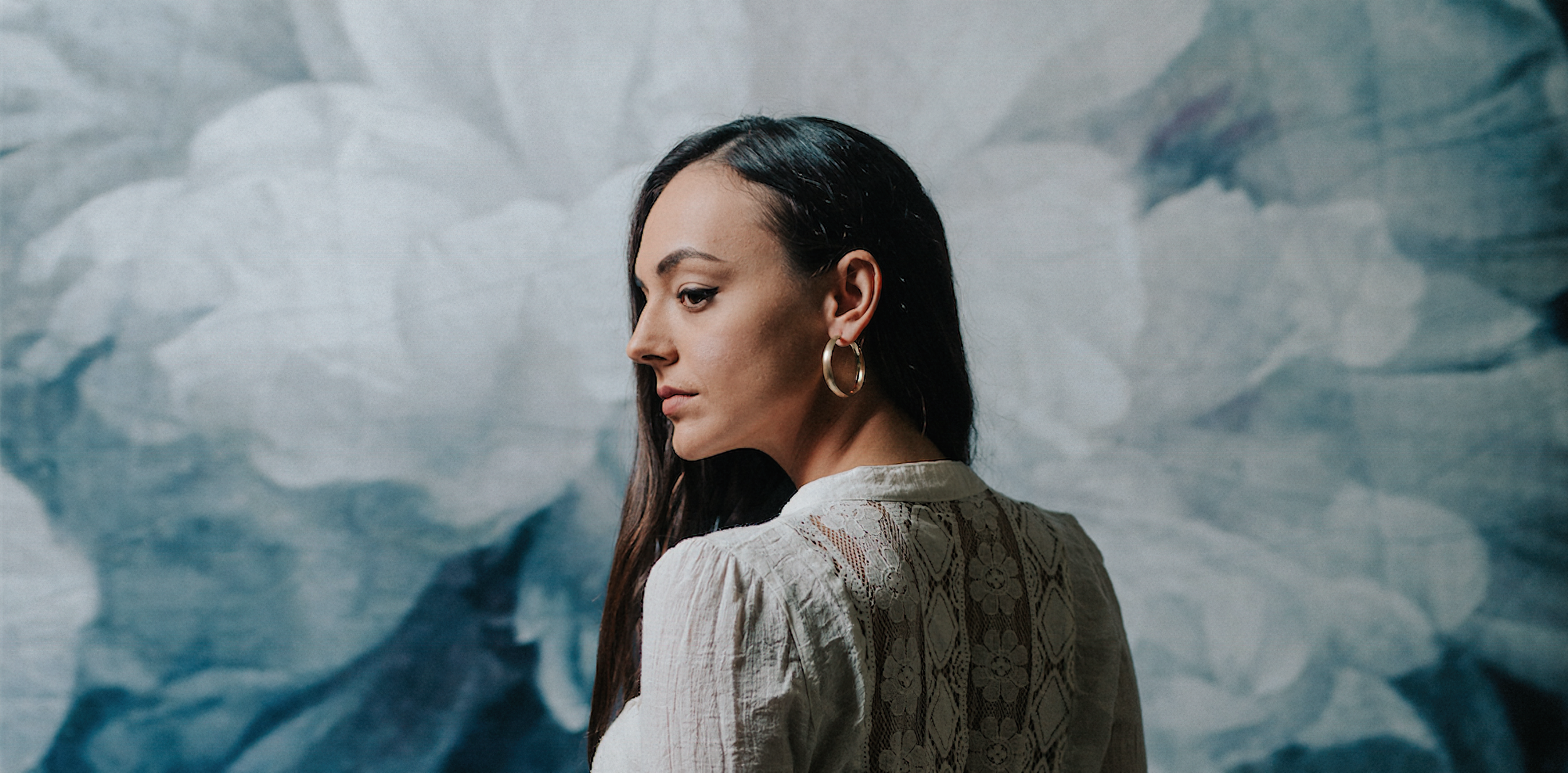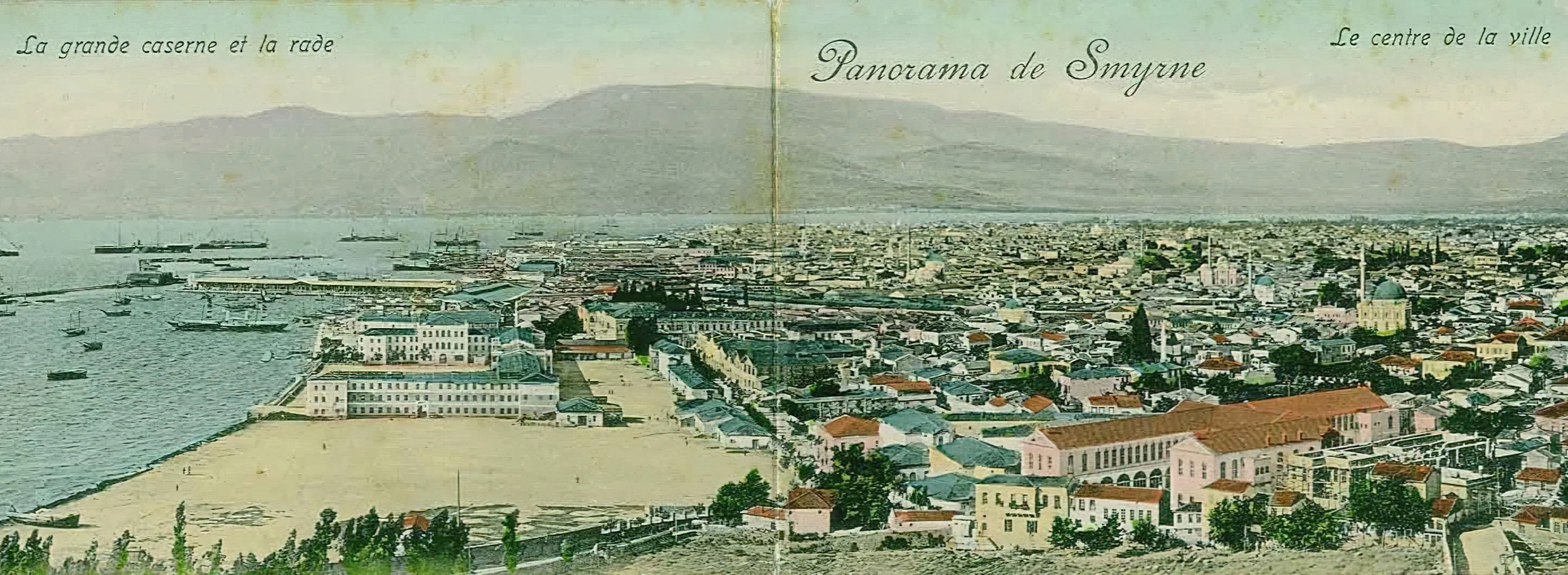Refuge and Renewal
Refuge and Renewal
Greek singer Erini of Crete presents the unique musical tradition of her ancestors in a new light.
Erini (a.k.a. Eirini Tornesaki) is a vocalist of Greek traditional music who blurs the lines between genres and explores intercultural dialogue through music. Growing up on the island of Crete, she was always moved by the stories of her family, who were refugees from Smyrna (Izmir); fascinated by the Greek culture of Asia Minor, she developed a passion for the traditional music of the region, and has recently formed her own ensemble that explores this music in a new light.
Erini performing Menexedes kai Zoumpoulia with the Pharos Ensemble
When did you know you wanted to become a singer, and where did you learn your craft?
I grew up in a musical home in Heraklion, Crete. My mother was a music teacher in middle schools and my father loved to sing, so our home was filled with all kinds of instruments. I’ve been singing ever since I can remember, and I expressed my wish to become a professional singer at a very young age, maybe at 4 years old.
I studied classical piano for 7 years, cello for 4 years, and was a member of the Heraklion Youth Choir and String Orchestra. When I was 18 I moved to England to study singing at the British & Irish Institute of Contemporary Music, and then went on to complete a master’s degree at Berklee College of Music’s Global Jazz Institute.
The style of music you perform is very unique—what is your connection to it?
Due to the origins of my great grandparents, who were refugees from Smyrna (modern-day Izmir), the culture of Asia Minor was very prevalent in my family and upbringing. My parents were members of the Alatsata Society, where the music, dance, and culture of the Greeks of Anatolia is preserved and passed on to future generations. I was fascinated by the sounds of this music, and frequently attended their choir rehearsals. These songs have stayed with me all of my life, and I’m now exploring this music in more depth.
Panorama of smyrna, circa 1900
What inspired you to go deeper into this tradition at this time?
When I left Crete to study in England, I initially wanted to perform Western popular music. Then I became attracted to Spanish, Latin American, and other musical styles from around the world. At that time my own musical tradition felt like something I simply took for granted… being curious to discover and explore new sounds, I didn’t realize it was a treasure I was carrying with me all along, and was something that actually played a significant role in my identity as an artist.
Then at the age of 22 I embarked on a 3 year tour with Cirque Du Soleil, where I also sang many styles of music. During this tour I began a very deep identity search within myself as a person and an artist. It was through this process that I began to revisit and seriously explore my own tradition, which led me to start performing this music a few years later.
Erini in Cirque Du Soleil's production of Kurios
Can you say more about the origins of this tradition, and what it’s like to perform this music today?
The music of Asia Minor originated in the time of the Ottoman Empire, and flourished especially during the beginning of the 20th century. It drew together a wide range of influences from Byzantine, Ottoman, and European music, and was shared amongst many different ethnic groups including the Greeks, Turks, Jews, Armenians, Persians and Arabs.
The songs and lyrics of this tradition have been passed down orally for generations. Many of them are in several different languages, and you can find many different variations that people sing. The songs are very poetic, romantic and elegant—they talk about love, about loved ones leaving for foreign lands, about separation, and there are also lullabies and laments.
And how did this tradition make its way to mainland Greece?
Between 1922-1923 a major crisis broke out in Anatolia due to a forced population exchange that occurred between Turkey and Greece in the aftermath of the Greco-Turkish War. Over 1 million Greeks were forced to flee the country, becoming permanently displaced from their homes. My great-grandparents were among those that fled who eventually settled on the island of Crete, where my family still lives today.
Fortunately, the rich musical heritage of this tradition was preserved by the refugees who brought it with them to Greece—it became loved and adopted by the Greek community, and influenced the development of later Greek musical styles such as Rebetiko. It’s still performed and appreciated there today, and through my own work I hope to continue carrying this tradition forward by sharing it with other peoples and cultures throughout the world.
The Pharos Ensemble performing Milo mou kai Mantarini
In 2017 I formed the Pharos Ensemble with exactly this goal in mind. The members of the ensemble are from Greece and Cyprus, and are all graduates of Berklee College of Music in Boston. We research, study and perform the traditional music of Asia Minor, and offer workshops and presentations in concert halls and universities throughout the US and abroad. Next year we’re recording our first studio album, and we have some exciting projects and collaborations coming up this Fall.
In addition to your ensemble, you’re also performing duets with cellist Naseem Alatrash—what inspired this collaboration?
Naseem is a Palestinian cellist whom I met at Berklee as well. Together we’re also exploring the music of Asia Minor and its influences, particularly its similarities and differences with Arabic, Turkish, and Byzantine music. Creating our own arrangements for voice and cello has allowed us to discover and experiment with new sounds, enabling us to present this music in a new light. It’s a very exciting process, and we’ll be performing duo concerts together starting this September (visit Autumn Salon Events for more information).
Eirini singing Korasion Etragoudage with Naseem Alatrash
What do you hope to offer the world through your music?
I would love to inspire people from different cultures to focus more on what unites us all, rather than what separates us. Music has the power to express what connects us; it represents the simple feeling of being human that we all share.
I believe it’s very important for everyone to honor their origins and embrace their identity, while also promoting diversity and intercultural understanding through being receptive to the stories and experiences of other cultures. Through the sharing of music and art we are able understand and learn more about one another.
For example by learning more about the daily lives of a people through their art and culture, we can better relate to challenging circumstances they may face through crises like war and migration, allowing us to cultivate a greater sense of empathy and understanding towards immigrants and refugees dealing with these issues in the world today.
Connecting with others through the power of music creates the opportunity for us to come together in a place beyond stigmas and stereotypes, where we can be seen and heard as who we truly are, regardless of where we may be from.
— Learn more about Erini at: erinimusic.com —




